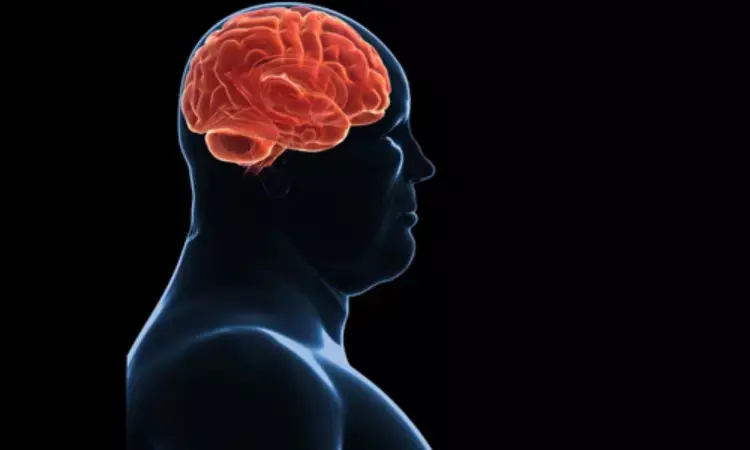- Home
- Medical news & Guidelines
- Anesthesiology
- Cardiology and CTVS
- Critical Care
- Dentistry
- Dermatology
- Diabetes and Endocrinology
- ENT
- Gastroenterology
- Medicine
- Nephrology
- Neurology
- Obstretics-Gynaecology
- Oncology
- Ophthalmology
- Orthopaedics
- Pediatrics-Neonatology
- Psychiatry
- Pulmonology
- Radiology
- Surgery
- Urology
- Laboratory Medicine
- Diet
- Nursing
- Paramedical
- Physiotherapy
- Health news
- Fact Check
- Bone Health Fact Check
- Brain Health Fact Check
- Cancer Related Fact Check
- Child Care Fact Check
- Dental and oral health fact check
- Diabetes and metabolic health fact check
- Diet and Nutrition Fact Check
- Eye and ENT Care Fact Check
- Fitness fact check
- Gut health fact check
- Heart health fact check
- Kidney health fact check
- Medical education fact check
- Men's health fact check
- Respiratory fact check
- Skin and hair care fact check
- Vaccine and Immunization fact check
- Women's health fact check
- AYUSH
- State News
- Andaman and Nicobar Islands
- Andhra Pradesh
- Arunachal Pradesh
- Assam
- Bihar
- Chandigarh
- Chattisgarh
- Dadra and Nagar Haveli
- Daman and Diu
- Delhi
- Goa
- Gujarat
- Haryana
- Himachal Pradesh
- Jammu & Kashmir
- Jharkhand
- Karnataka
- Kerala
- Ladakh
- Lakshadweep
- Madhya Pradesh
- Maharashtra
- Manipur
- Meghalaya
- Mizoram
- Nagaland
- Odisha
- Puducherry
- Punjab
- Rajasthan
- Sikkim
- Tamil Nadu
- Telangana
- Tripura
- Uttar Pradesh
- Uttrakhand
- West Bengal
- Medical Education
- Industry
SGLT2 inhibitor empagliflozin may improve brain's insulin sensitivity in prediabetics: Study

Germany: Researchers in a recent study published in Diabetes Care have shown for the first time that the SGLT2 inhibitor empagliflozin can be used for the treatment of insulin resistance in the brain. This will have positive effects on adiposity and the metabolism of the whole body.
Obesity or overweight and the development of type 2 diabetes are often associated with a reduced effect of the hormone insulin in many organs, including the brain -- insulin resistance. Despite many advances in diabetes treatment, there is no treatment to restore insulin sensitivity in the brain, which plays a key role in metabolic control.
The brain has a decisive influence on our eating behavior and thus also on body weight and metabolism. If the brain reacts sensitively to insulin, we eat less, less abdominal fat is stored, and the insulin sensitivity of the entire body improves. However, in people with obesity or type 2 diabetes, the hormone in the brain is no longer effective. This insulin resistance leads to a disturbed metabolism. So far, insulin resistance in the brain cannot be treated with drugs. The researchers investigated whether a diabetes drug from the SGLT2 inhibitor group can also reverse insulin resistance in the brain. SGLT2 inhibitors reduce elevated blood glucose levels in diabetes by promoting glucose excretion through the urine and have a beneficial effect on the heart, circulation, and kidneys. For this purpose, the effect of the SGLT2 inhibitor empagliflozin on the insulin sensitivity of the brain was investigated in study participants with a preliminary stage of diabetes (prediabetes).
In a prospective, randomized, double-blind study, 40 people with prediabetes (age: 60 ± 9 years; BMI: 31.5 ± 3.8 kg/m²) received the drug empagliflozin or a placebo for eight weeks. The researchers used functional magnetic resonance imaging (fMRI) to determine the insulin sensitivity of the brain before and after treatment. For this purpose, the subjects were given insulin via a nasal spray. When the hormone is absorbed through the nose, it reaches the brain directly. In addition, whole-body magnetic resonance imaging (MRI) was used to determine fat distribution.
SGLT2 inhibitor increases insulin sensitivity of the brain
"While placebo administration had no influence on insulin action in the brain, empagliflozin treatment significantly improved the effect of the hormone on brain activity," said lead author PD Dr. Stephanie Kullmann, summarizing the results of the study. Empagliflozin administration also improved fasting glucose levels and decreased liver fat content. Although the SGLT2 inhibitor did not reduce weight, it did reduce body fat content.
First pharmacological approach to reverse insulin resistance in the brain
"Our studies confirm insulin resistance in the brain in people with prediabetes," said last author Professor Martin Heni of Tübingen University Hospital, Germany. "Treatment with empagliflozin was able to restore insulin sensitivity. These results position SGLT2 inhibitors as the first potential pharmacological approach to treat insulin resistance in the brain. The increased insulin sensitivity also contributes to improved body metabolism."
As a next step, the researchers plan to investigate whether the improved insulin action in the brain is also involved in the beneficial effects of SGLT2 inhibitors on the heart and kidneys.
Reference:
Stephanie Kullmann, Julia Hummel, Robert Wagner, Corinna Dannecker, Andreas Vosseler, Louise Fritsche, Ralf Veit, Konstantinos Kantartzis, Jürgen Machann, Andreas L. Birkenfeld, Norbert Stefan, Hans-Ulrich Häring, Andreas Peter, Hubert Preissl, Andreas Fritsche, Martin Heni; Empagliflozin Improves Insulin Sensitivity of the Hypothalamus in Humans With Prediabetes: A Randomized, Double-Blind, Placebo-Controlled, Phase 2 Trial. Diabetes Care 2021; dc211136. https://doi.org/10.2337/dc21-1136
Dr Kamal Kant Kohli-MBBS, DTCD- a chest specialist with more than 30 years of practice and a flair for writing clinical articles, Dr Kamal Kant Kohli joined Medical Dialogues as a Chief Editor of Medical News. Besides writing articles, as an editor, he proofreads and verifies all the medical content published on Medical Dialogues including those coming from journals, studies,medical conferences,guidelines etc. Email: drkohli@medicaldialogues.in. Contact no. 011-43720751


